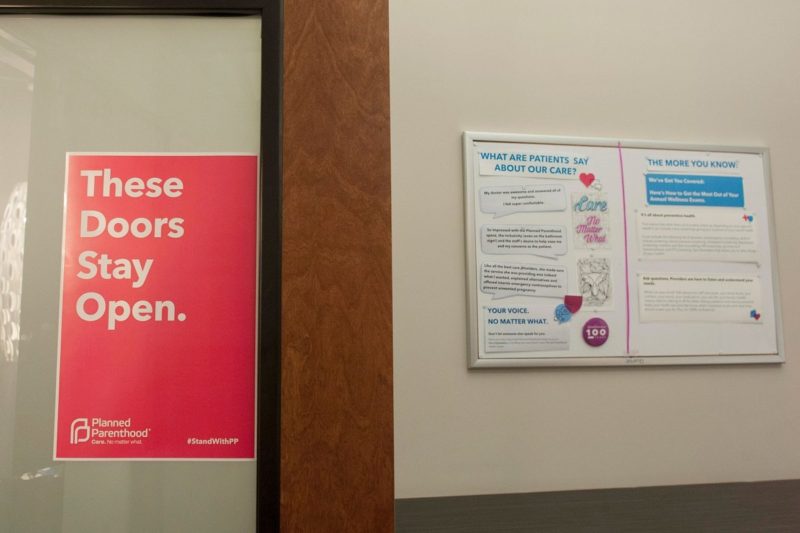Defunding Planned Parenthood Hurts the Poor and Rural, Say Congressional Analysts
Kaiser Family Foundation polling found that 75 percent of voters opposed the GOP provision defunding Planned Parenthood. Only 22 percent were in favor.

A damning Congressional Budget Office (CBO) analysis removed any doubt that Republicans were aiming to take down Planned Parenthood through their American Health Care Act (AHCA). A closer look at the CBO’s findings reveal that “defunding” the health-care organization would disproportionately hurt people with low incomes, especially those in rural areas.
The CBO confirmed that Republicans in the U.S. House of Representatives wrote the provision to deny Planned Parenthood, and only Planned Parenthood, of some $390 million in Medicaid reimbursements for one year, all because they want to punish the organization for providing abortion care that isn’t covered by federal funds, as Rewire reported. The CBO’s unequivocal determination could boost arguments that the provision violates the U.S. Senate’s Byrd rule, potentially forcing Republicans to choose between dropping their vendetta against Planned Parenthood or tanking their plan to unravel Obamacare.
Cutting off Planned Parenthood from Medicaid reimbursements really means cutting off Medicaid recipients from Planned Parenthood. Potentially life-saving cancer screenings and STI testing would be out of reach. So would contraceptive care, as the CBO, the independent, nonpartisan number crunchers serving Capitol Hill, confirmed in analyzing the Planned Parenthood provision.
“To the extent that there would be reductions in access to care under the legislation, they would affect services that help women avert pregnancies,” the CBO said.
That assessment aligns with the 54 percent of Planned Parenthood health centers serving “health professional shortage areas, rural or medically underserved areas,” according to a fact sheet from Planned Parenthood Federation of America. The community health centers Republicans have falsely propped up as an alternative to Planned Parenthood are not prepared to fill the gap in care, even with a $422 million infusion under the AHCA.
By the CBO’s accounting, about 15 percent of people “in areas without other health care clinics or medical practitioners who serve low-income populations” would lose access to care.
As a result, the 45 percent of all U.S. births covered under Medicaid—a 1.8 million chunk of the 4 million total, based on 2010 data—“would increase by several thousand.” The overall savings associated with defunding Planned Parenthood for one year would ultimately swallow the corresponding increase in short- and long-term Medicaid spending.
The one-year plan saves money—$156 million between 2017 and 2026—because taxpayers would temporarily stop underwriting the ability of Medicaid recipients to obtain care at Planned Parenthood. As the CBO found in 2015, doing so permanently would cost the government $130 million over ten years because of even more unintended pregnancies that would arise without Planned Parenthood’s contraceptive care.
The ultimate increase in government spending, along with a formidable constituent backlash already on display, is why Republicans are only targeting Planned Parenthood for one year.
Kaiser Family Foundation polling found that 75 percent of voters opposed the Planned Parenthood provision in the week before the CBO released its score. Only 22 percent favored the provision, according to Kaiser, a nonpartisan, nonprofit organization considered the gold standard among health-care researchers and journalists.
Per the CBO, the AHCA as a whole could strip 24 million people of their health insurance coverage. A White House analysis placed that number even higher, at 26 million people.
By ending Medicaid in 2020 and capping Medicaid spending, the legislation would hurt people with low incomes who rely on the program. “Most of those losing Medicaid would likely end up uninsured,” the nonpartisan Center for Budget and Policy Priorities wrote in a blog post.
Some Republicans think the AHCA doesn’t do enough to cast off the poor. Members of the ultra-conservative House Freedom Caucus, among others, want to end Medicaid expansion in 2018. The White House has gone back and forth on its position.
